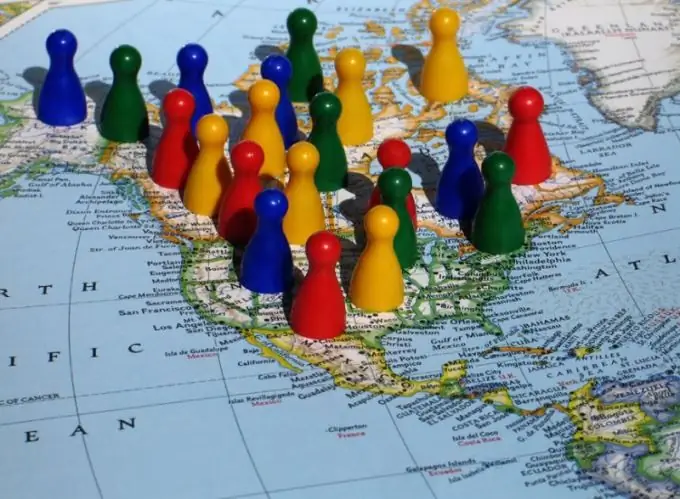- Author Antonio Harrison harrison@cultureoeuvre.com.
- Public 2023-12-16 07:44.
- Last modified 2025-01-22 21:44.
A nation is a community of people united by spiritual, socio-economic, cultural and political ties. The Latin word natio in translation means "tribe, people".

Instructions
Step 1
In the system of international law, the term "nation" is synonymous with the concept of the state. From the point of view of politics, a nation is called people who uniformly position themselves in space and time, associate their existence with a certain territory and history of development. This self-positioning must be stable and conscious.
Step 2
Also, such a concept as ethnonation stands out. This word denotes an ethnos that, as a result of historical development, has reached a national level, that is, it belongs to a certain state, has political institutions and is aware of its fellow citizenship. Mono-national states should be distinguished from ethnonation, which include equal national minorities. Ethnonation has a genetic and anthropological unity.
Step 3
Nationality is often confused with a nation. However, the second concept denotes an ethnic community, and this is only one of the characteristics of a nation. Therefore, the concept of nationality is narrower.
Step 4
According to the composition of the nation, they are divided into mono-ethnic and multi-ethnic. Mono-ethnic groups are rare, more often a nation is formed on the basis of several ethnic groups.
Step 5
Representatives of the same nation can be united in terms of language, but this is also not a prerequisite. The same language can be used by several nations. As part of multiethnic nations, most ethnic groups may use a language that is not native to them or not speak the language of their nation.
Step 6
Historically, the formation of nations was associated with the development of industrial relations, the general economic system, and the trade sphere. As a result, it became necessary to overcome national fragmentation and isolation on oneself. Moreover, nations were formed both on the basis of large nationalities with established ties, and in the absence of all the necessary conditions (during colonial battles, wars for independence).
Step 7
According to the researcher of nationalism B. Anderson, the first modern nations were Latin American. The very concept of a nation in a political sense appeared during the Great French Revolution. The youngest nations are Vietnamese and Cambodian.






